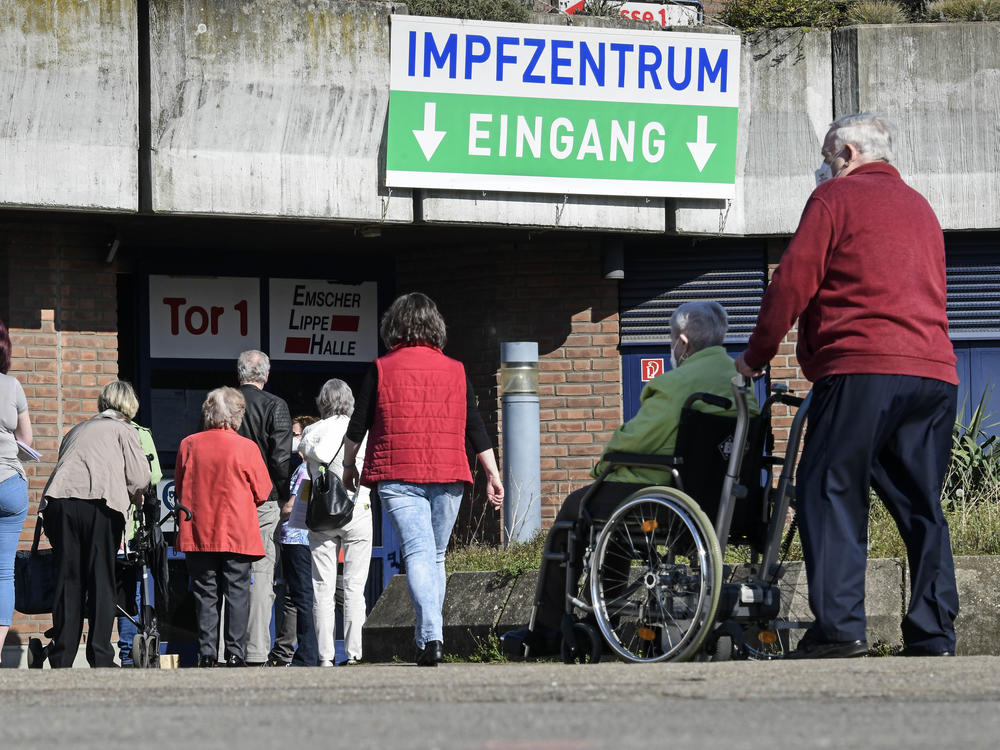Section Branding
Header Content
Germany Says It Will Explore Buying Russia's Sputnik V Vaccine, Bucking EU Policy
Primary Content
BERLIN — The German government is preparing to enter into negotiations with Moscow to pre-order doses of Russia's coronavirus vaccine, Sputnik V, breaking from the EU's joint vaccine procurement efforts.
Following a meeting with his EU counterparts on Wednesday, Federal Health Minister Jens Spahn said that because the EU Commission does not intend to purchase the Russian vaccine for the entire bloc, Germany will go it alone.
Thierry Breton, the EU commissioner in charge of vaccine procurement argues that Sputnik doses would not arrive in time to make any difference to the European Union's vaccination efforts.
But the German health minister sees Sputnik as a stop-gap solution to the current vaccine dose shortage caused by myriad supply issues. Speaking to public broadcaster WDR on Thursday, Spahn cautioned that any potential order of Sputnik V would need to be delivered within two to five months in order to make a difference to Germany's faltering vaccine rollout.
While EU member state Hungary has already started using the Russian vaccine, a German deal with Moscow is contingent upon Sputnik V being approved by the European Medicines Agency, the EU's drug regulator. The EMA started its review of the vaccine in March.
There's already support for the health minister's procurement plans at state level, particularly in formerly Communist region of eastern Germany, such as Saxony-Anhalt and Thüringen. Those states' premiers have long been calling for negotiations with Moscow.
Reiner Haseloff, state premier of Saxony-Anhalt, says that while the EMA must authorize the vaccine, he has faith in its efficacy, adding that he gratefully received the Soviet polio vaccine as a child in the former East Germany, where inoculation against the disease was rolled out earlier than in West Germany.
Meanwhile, initial hesitancy in western Germany about the speed with which the Russians approved Sputnik is waning. The state of Bavaria is even one step ahead of the federal government and has signed a letter of intent to buy up to 2.5 million doses of the Sputnik V vaccine, provided it receives EMA approval. The Bavarians hope to start manufacturing Sputnik at home, in the town of Illertissen.
But the unilateral move by prosperous Bavaria has not gone down well with other, less-wealthy German states, which fear being left behind. Their calls for solidarity in procuring and distributing vaccines echo those made by EU member states at the beginning of the year when they agreed not to enter into exclusive talks with suppliers.
Copyright 2021 NPR. To see more, visit https://www.npr.org.

